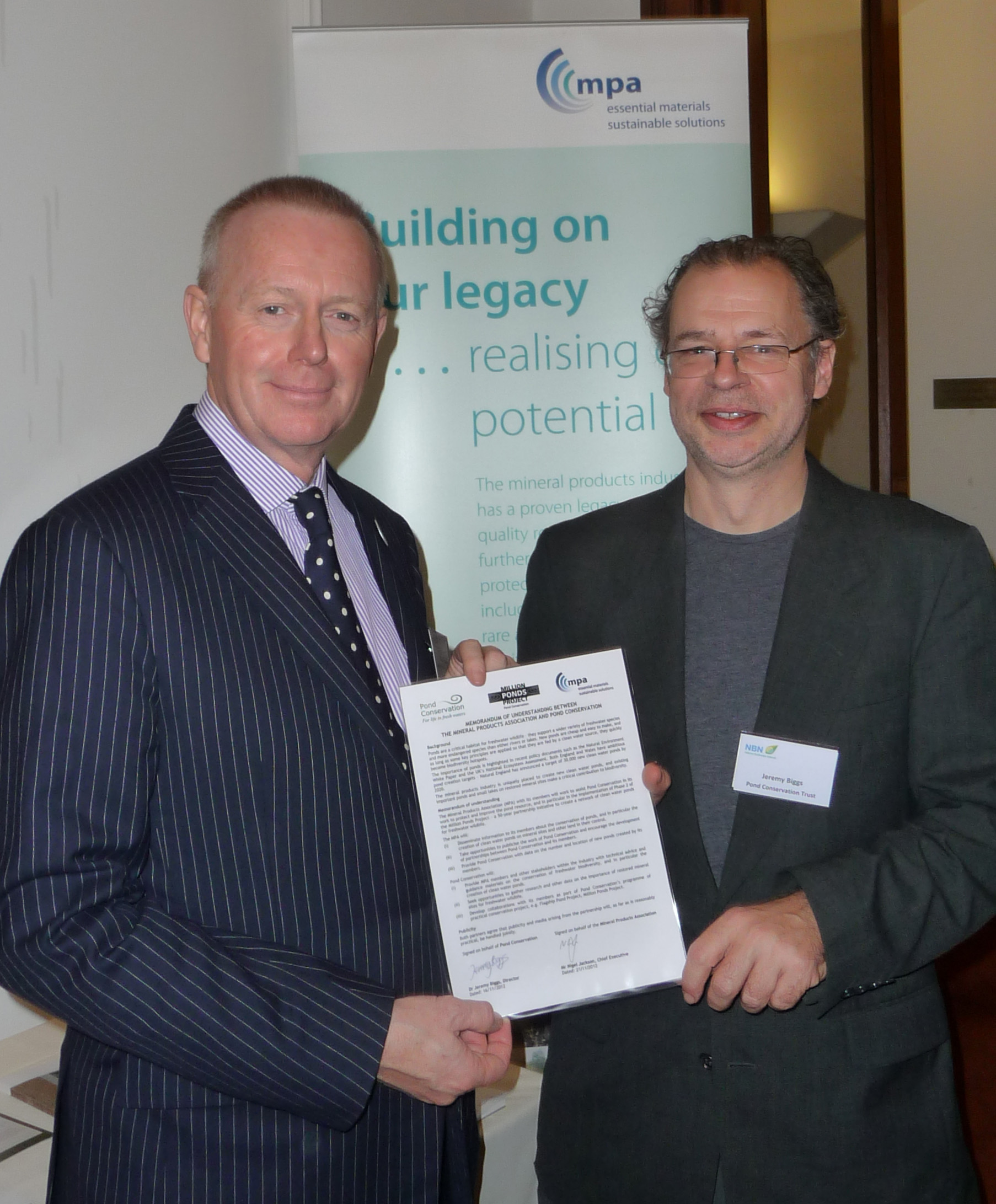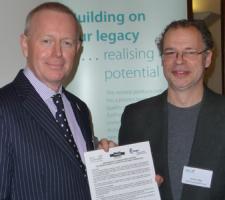
The
The project is using pond creation to put back into the landscape a scare natural resource, clean, unpolluted water, which is vital for protecting life in freshwater. Clean water has been all but eliminated from large parts of the British landscape with 95% of freshwaters damaged by pollution in large parts of the country.
The MPA’s members extract minerals (sand, gravel and rock) essential for the country’s economic growth and restore the worked land to a variety of after uses including wetlands with lakes and associated habitats. These areas already contain some of Britain’s best wildlife habitats.
But freshwater wildlife needs small ponds as well as big lakes. Recognising this, and the fact that more endangered freshwater plants and animals use ponds than either rivers or lakes, MPA has teamed up with Pond Conservation to encourage the creation of new high quality, clean water ponds, as part of the restoration of aggregate extraction sites or the management of already restored sites.
Ponds are a critical habitat for freshwater wildlife, supporting a wider variety of freshwater species and more endangered species than either rivers or lakes. New ponds are cheap and easy to make, and as long as some key principles are applied, so that they are fed by a clean water source, they quickly become biodiversity hotspots. And pond creation on aggregate extraction sites can be very cost-effective because earth-moving equipment is often available on site and ponds need relatively little space, provided they are protected from pollution.
The importance of ponds for protecting freshwater wildlife is increasingly recognised (paradoxically these tiny habitats support a large proportion of the UK’s freshwater life and it is now being realised that making new ponds, and protecting existing wildlife rich ponds, has a major role to play in protecting the plants and animals of freshwater generally) alongside the traditional activities of cleaning up rivers and lakes.
Reflecting this, both England and Wales have ambitious pond creation targets:
MPA members are well placed to create new clean water ponds, and existing important ponds and small lakes on restored mineral sites make a critical contribution to biodiversity.
MPA members will work to assist Pond Conservation in its work to protect and improve the pond resource, and in particular in the implementation of Phase 2 of the Million Ponds Project, a 50-year partnership initiative to create a network of clean water ponds for freshwater wildlife.
During Phase 1 of the Million Ponds Project, which ran from 2008-2012, Pond Conservation worked closely with the minerals industry to create ponds on minerals sites providing the foundation for the present initiative. Bespoke advice for the minerals industry was also provided as part of the Pond Creation toolkit, the most extensive set of information yet produced about the creation of ponds for protecting life in freshwater.
Nigel Jackson, chief executive MPA, said: “MPA members have a long legacy of high quality restoration and are uniquely placed to protect and enhance biodiversity and help arrest the decline of rare and threatened species and habitats. This partnership will enable our members to build on the biodiversity work they do already to ensure we are contributing what we can to Pond Conservation's ambitious plans for a million new clean water ponds.”
Dr Jeremy Biggs, Pond Conservation, said: “Forward thinking, careful restoration and ongoing management of minerals sites often leads to some of the very best natural environments. The minerals industry has already made a positive environmental contribution and they have a tremendous opportunity to make new high quality, unpolluted ponds: they have the land, the machines and making ponds is cheap and easy.”









